While South Africa has many impressive healthcare experts, most of our provincial health departments — the entities tasked with managing the provision of most healthcare services in the country — are poorly managed.
Currently, this disconnect is particularly apparent in Gauteng.
The province is the country’s economic centre. It houses multiple medical training institutions, a number of leading service delivery NGOs, scores of top researchers and research entities and, of course, much of South Africa’s private healthcare sector is headquartered in the province.
Gauteng is also comparatively rich in the non-health skills required to run a provincial health department — finance, administration and so on.
Yet, it recently emerged from a response to questions asked in the provincial legislature that 18 senior posts in the Gauteng Department of Health are vacant. These include a number of critically important positions in the human resource department — as well as posts relating to nursing, administration, finance, and health information and technology.
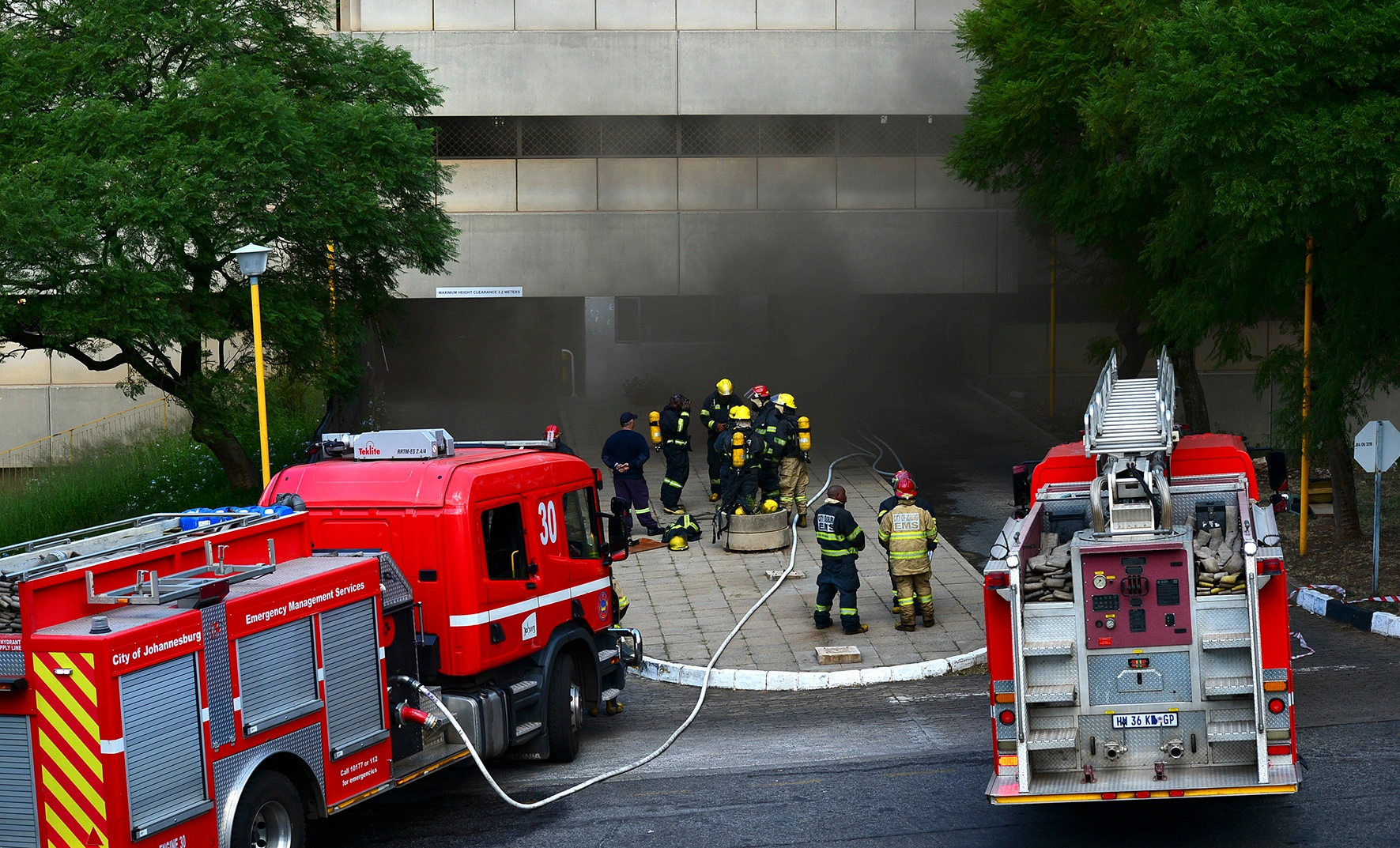 The fire at the Charlotte Maxeke hospital in April was the fourth in provincial public health facilities in the past six years. (Photo: Gallo Images / Daily Sun / Morapedi Mashashe)
The fire at the Charlotte Maxeke hospital in April was the fourth in provincial public health facilities in the past six years. (Photo: Gallo Images / Daily Sun / Morapedi Mashashe)
The situation hits at one of the key dynamics of health governance in South Africa — most provincial health departments have become so politicised and dysfunctional that they generally repel rather than attract the best managers. To be clear, we are speaking specifically about managers and administrative staff rather than healthcare workers — many healthcare workers continue to serve in the public sector despite often being abandoned by the bureaucrats who are supposed to support them.
As a result, the Gauteng Department of Health is the exact opposite of the capable state we keep hearing about.
From the Life Esidimeni disaster to the utter incompetence shown in rebuilding after last year’s Charlotte Maxeke Hospital fire, the department has bumbled along from one avoidable scandal to the next.
Just this week we heard of medical waste services stopping due to nonpayment, doctors having to take food to patients at Chris Hani Baragwanath Hospital, and interns not having been paid for three months (this latter issue was resolved after media reports). Somehow the department can’t even manage these bare basics of good governance.
In the department’s defence, some might highlight the fact that health budgets are declining in real terms and point out that in some cases other government departments are involved, such as when the Department of Infrastructure Development fails to fix broken elevators.
But these excuses ring hollow when the department struggles to responsibly spend the funds it does have — consider the wastage on essentially unused Covid field hospitals — and when it fails to work with other government departments to solve shared problems.
A central part of good management is, after all, to solve problems rather than to simply wish them away.
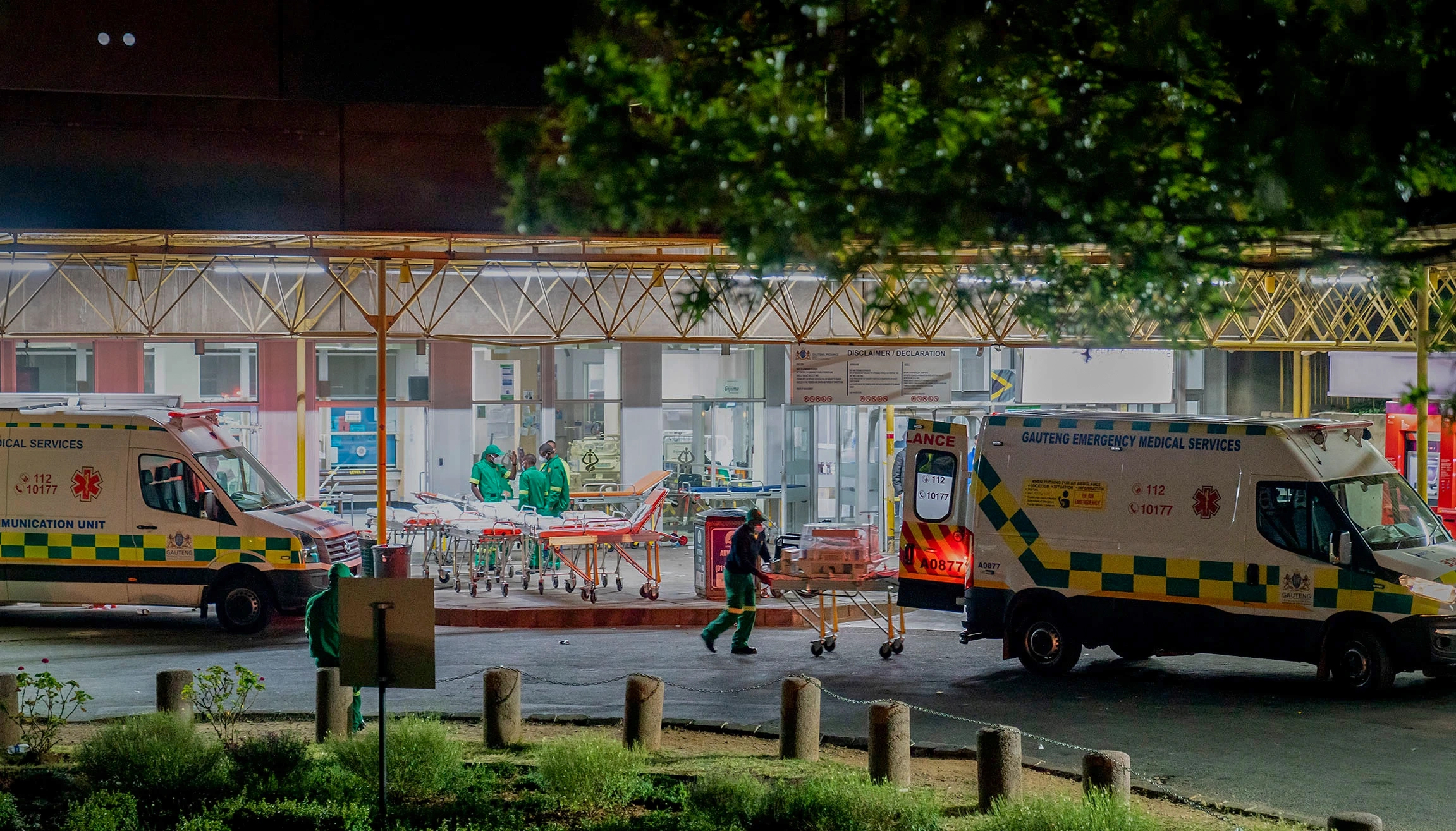 A paramedic prepares to load a baby in an incubator into an ambulance on Saturday night 17 April. This follows the evacuation of patients from the previous evening after the fire at Charlotte Maxeke Hospital was reignited. While the patients were not in danger, the evacuation was a precautionary measure and also to save them from smoke inhalation. (Photo: Shiraaz Mohamed)
A paramedic prepares to load a baby in an incubator into an ambulance on Saturday night 17 April. This follows the evacuation of patients from the previous evening after the fire at Charlotte Maxeke Hospital was reignited. While the patients were not in danger, the evacuation was a precautionary measure and also to save them from smoke inhalation. (Photo: Shiraaz Mohamed)
It is also telling that some provinces or some districts within provinces do better than others — the Western Cape Department of Health, for example, has generally steered clear of the constant cycle of scandal and dysfunction seen in some other provinces. And, to be fair, even in some of the worst-run provinces, we have met qualified and committed officials engaged in a lonely struggle against the pervasive culture of mediocrity. But they are the exceptions.
What is to be done?
It is good that government and the ANC have recently been more outspoken about the need to build a capable state and to fight corruption. But to make all the “capable state” rhetoric a reality will require appropriately qualified and committed people all the way down the line. This is as true for the functioning of provincial healthcare departments as it is for the National Prosecuting Authority’s ability to successfully prosecute corruption, or for Eskom to keep the lights on.
A first step might simply be for those in leadership positions to acknowledge the seriousness of the problem.
That means acknowledging it is not just a matter of a few bad apples, but one of self-perpetuating and systemic management dysfunction. It also means acknowledging that there are foundational management capacity problems that will derail other reform efforts if not addressed — be it National Health Insurance or the new district development model.
Either way, that many of our best health managers do not want to work in provincial health departments should be acknowledged for the crisis it is.
Second, we need to reckon with the fact that patronage and political interference is at the root of much that is wrong in our provincial health departments.
For one, political interference makes them less attractive to work in. It also means people are appointed to senior positions for the wrong reasons, in the process often entrenching mediocrity at the level of senior management.
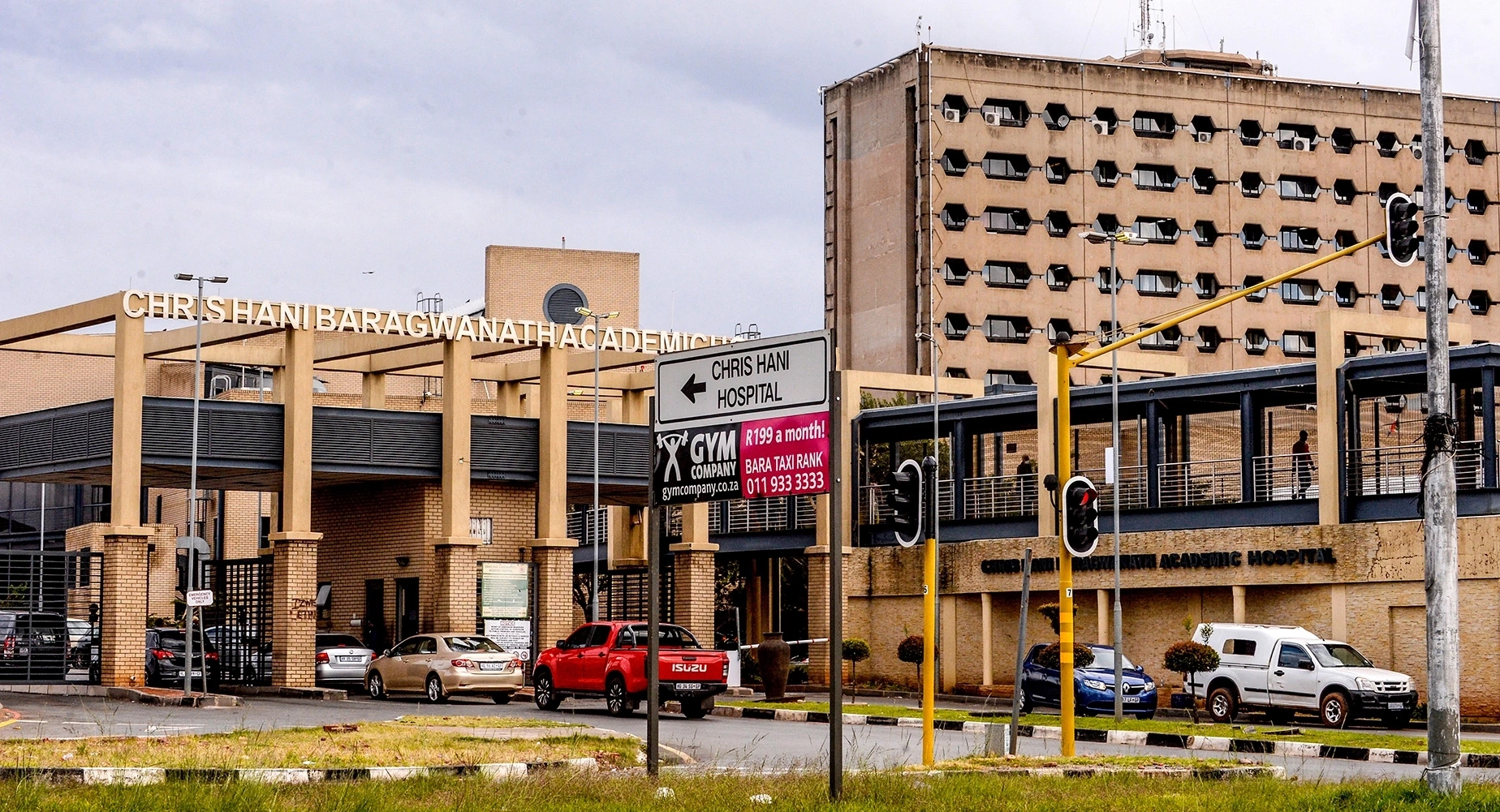 Chris Hani Baragwanath Hospital in Soweto. Just this week we heard of medical waste services stopping due to nonpayment, doctors having to take food to patients at Chris Hani Baragwanath Hospital, and interns not having been paid for three months (this latter issue was resolved after media reports). Somehow the department can’t even manage these bare basics of good governance. (Photo: Gallo Images / Sydney Seshibedi)
Chris Hani Baragwanath Hospital in Soweto. Just this week we heard of medical waste services stopping due to nonpayment, doctors having to take food to patients at Chris Hani Baragwanath Hospital, and interns not having been paid for three months (this latter issue was resolved after media reports). Somehow the department can’t even manage these bare basics of good governance. (Photo: Gallo Images / Sydney Seshibedi)
Consider the appointment of senior staff such as directors-general and heads of health departments — appointments made by the president and provincial premiers respectively. These are supposed to be some of the best managers in the country; people who might otherwise be the CEOs of large, successful companies, and yet, often these appointments are made for political reasons, or because someone knows somebody, or because a minister or MEC convinces the president or premier to appoint someone who will toe the party line.
There are exceptions, but often these appointments make a mockery of the government’s “capable state” rhetoric.
Third, while acknowledging our management problems and setting higher standards when making new appointments is critically important, we also urgently have to dislodge chronically underperforming people from influential posts in health departments.
Too often, underperforming or allegedly corrupt people are temporarily suspended, only to be back in the saddle when things have quietened down.
Too often, someone who disappears from a department under a cloud of suspicion magically reappears a few months later in another department, as if nothing has happened.
Too often, those in power make bold promises to act, but when push comes to shove, use the Labour Relations Act — or some other law or regulation — as an excuse for not acting.
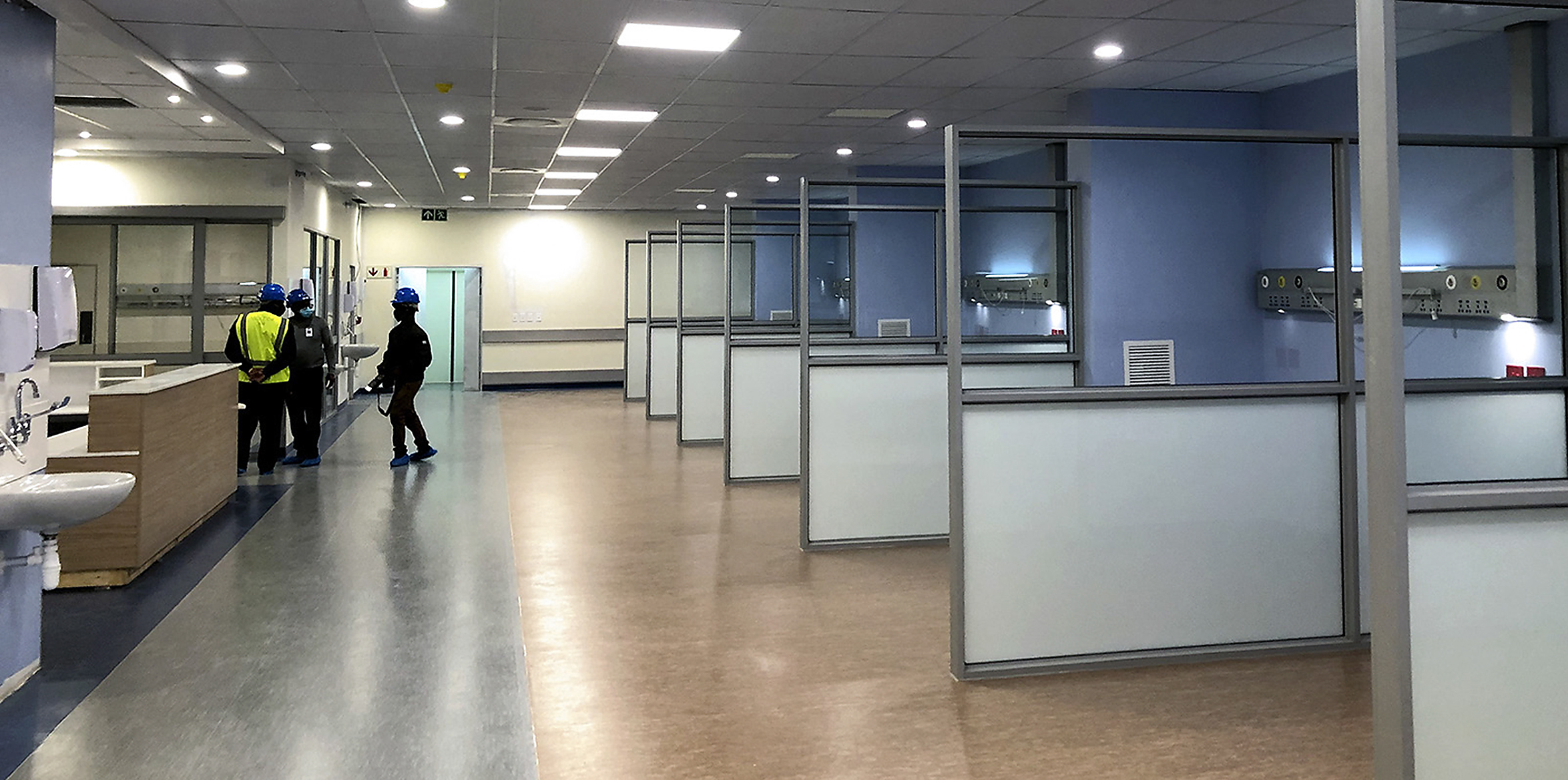 The nearly completed ICU ward at Chris Hani Baragwanath Hospital. (Photo: Mark Heywood)
The nearly completed ICU ward at Chris Hani Baragwanath Hospital. (Photo: Mark Heywood)
Too often, in the moment of crisis in this or that department, task teams are set up, only to be forgotten as soon as the dust settles.
Of course, there is power in doling out patronage, and those who are used to this type of politics will not easily let go of the reins.
Overlooking a party cadre for an important job will often have political repercussions, as will dislodging underperforming but loyal cadres from senior management positions.
But even for the ANC — with its blinkered view of the damage wrought by its cadre deployment policy — it must be obvious that the price normal people are paying for its patronage politics is simply too high. DM/MC
Marcus Low is the editor of Spotlight.
This article was published by Spotlight — health journalism in the public interest.





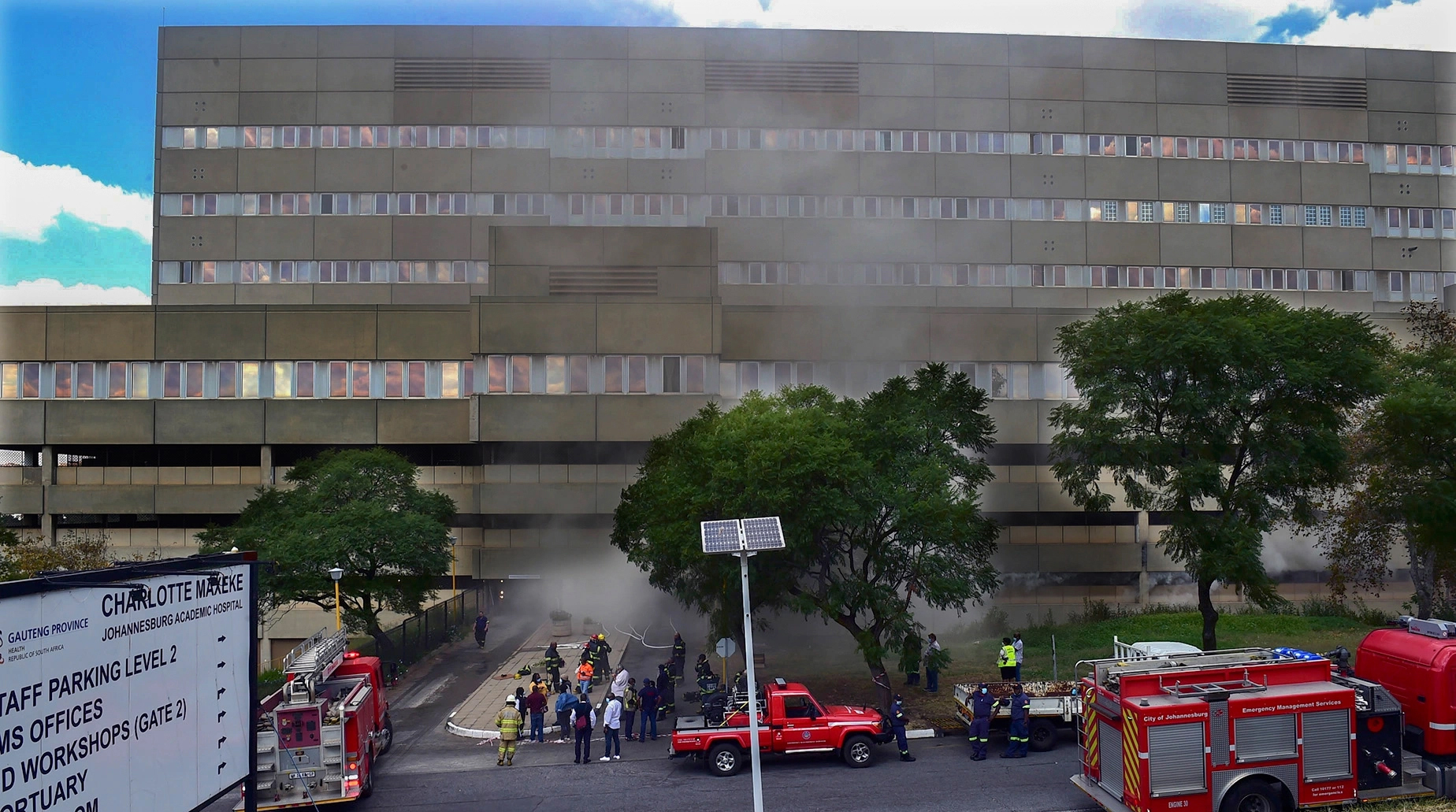 The nearly completed ICU ward at Chris Hani Baragwanath Hospital. (Photo: Mark Heywood)
The nearly completed ICU ward at Chris Hani Baragwanath Hospital. (Photo: Mark Heywood)